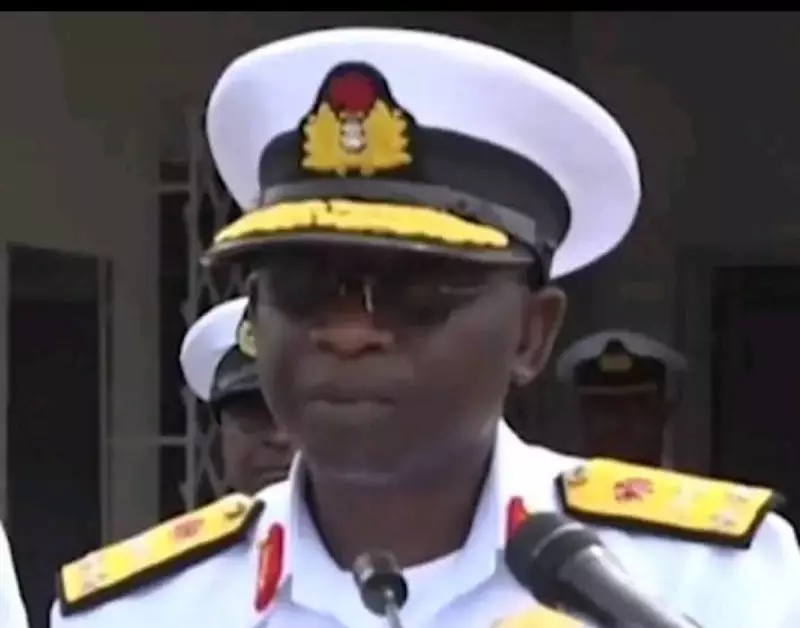
In a bold declaration that signals a new era in Nigeria's maritime security strategy, the Chief of Naval Staff, Vice Admiral Emmanuel Ogalla, has outrightly rejected proposals for establishing a coast guard while unveiling ambitious plans to deploy cutting-edge technology including drones and artificial intelligence to combat oil theft and piracy.
The senior naval commander made his position clear during a recent high-level meeting, emphasizing that the Nigerian Navy possesses both the capability and constitutional mandate to secure the nation's territorial waters without the need for additional security structures.
Technological Revolution in Maritime Defense
Vice Admiral Ogalla outlined a comprehensive technological overhaul that will transform how Nigeria protects its vital economic interests at sea. The integration of drone surveillance systems and AI-powered monitoring tools represents a significant leap forward in the nation's fight against maritime criminals who have cost the economy billions in stolen crude oil and disrupted shipping routes.
"We are moving beyond traditional patrol methods," the naval chief stated. "Our new approach will leverage real-time data analytics, predictive intelligence, and unmanned aerial systems to stay several steps ahead of criminal elements operating in our waters."
Why Coast Guard Proposal Was Dismissed
The rejection of coast guard initiatives stems from the Navy's confidence in its existing infrastructure and personnel. Vice Admiral Ogalla highlighted several key reasons for this position:
- The Nigerian Navy already maintains extensive coastal monitoring capabilities
- Establishing a separate coast guard would create unnecessary bureaucratic duplication
- Current naval resources, when enhanced with new technology, can effectively handle all maritime security challenges
- Budget allocations are better directed toward technological upgrades rather than creating new institutions
Gulf of Guinea Security Implications
This strategic shift comes at a critical time for the Gulf of Guinea, which has been plagued by piracy and oil theft incidents that affect not only Nigeria but regional stability and global energy markets. The deployment of advanced surveillance technology is expected to significantly reduce response times to security threats and provide unprecedented monitoring coverage of vulnerable areas.
Industry experts have welcomed the announcement, noting that technological solutions could prove more effective than simply increasing patrol vessels in combating sophisticated oil theft networks that have operated with relative impunity for years.
The Nigerian Navy's commitment to embracing 21st-century security solutions marks a turning point in the nation's approach to protecting its maritime resources and could set a new standard for coastal security across West Africa.





